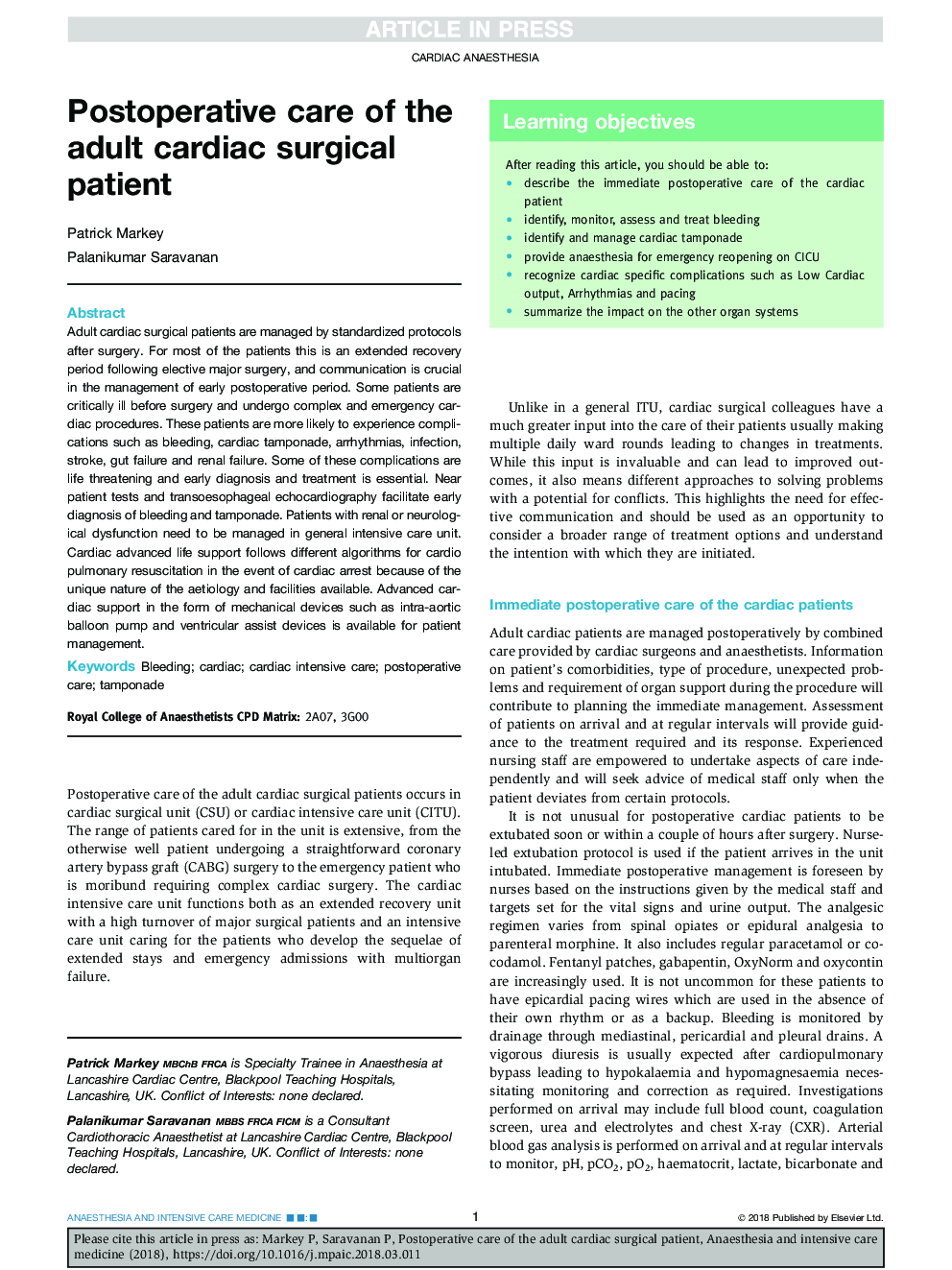| Article ID | Journal | Published Year | Pages | File Type |
|---|---|---|---|---|
| 8609884 | Anaesthesia & Intensive Care Medicine | 2018 | 8 Pages |
Abstract
Adult cardiac surgical patients are managed by standardized protocols after surgery. For most of the patients this is an extended recovery period following elective major surgery, and communication is crucial in the management of early postoperative period. Some patients are critically ill before surgery and undergo complex and emergency cardiac procedures. These patients are more likely to experience complications such as bleeding, cardiac tamponade, arrhythmias, infection, stroke, gut failure and renal failure. Some of these complications are life threatening and early diagnosis and treatment is essential. Near patient tests and transoesophageal echocardiography facilitate early diagnosis of bleeding and tamponade. Patients with renal or neurological dysfunction need to be managed in general intensive care unit. Cardiac advanced life support follows different algorithms for cardio pulmonary resuscitation in the event of cardiac arrest because of the unique nature of the aetiology and facilities available. Advanced cardiac support in the form of mechanical devices such as intra-aortic balloon pump and ventricular assist devices is available for patient management.
Related Topics
Health Sciences
Medicine and Dentistry
Anesthesiology and Pain Medicine
Authors
Patrick Markey, Palanikumar Saravanan,
